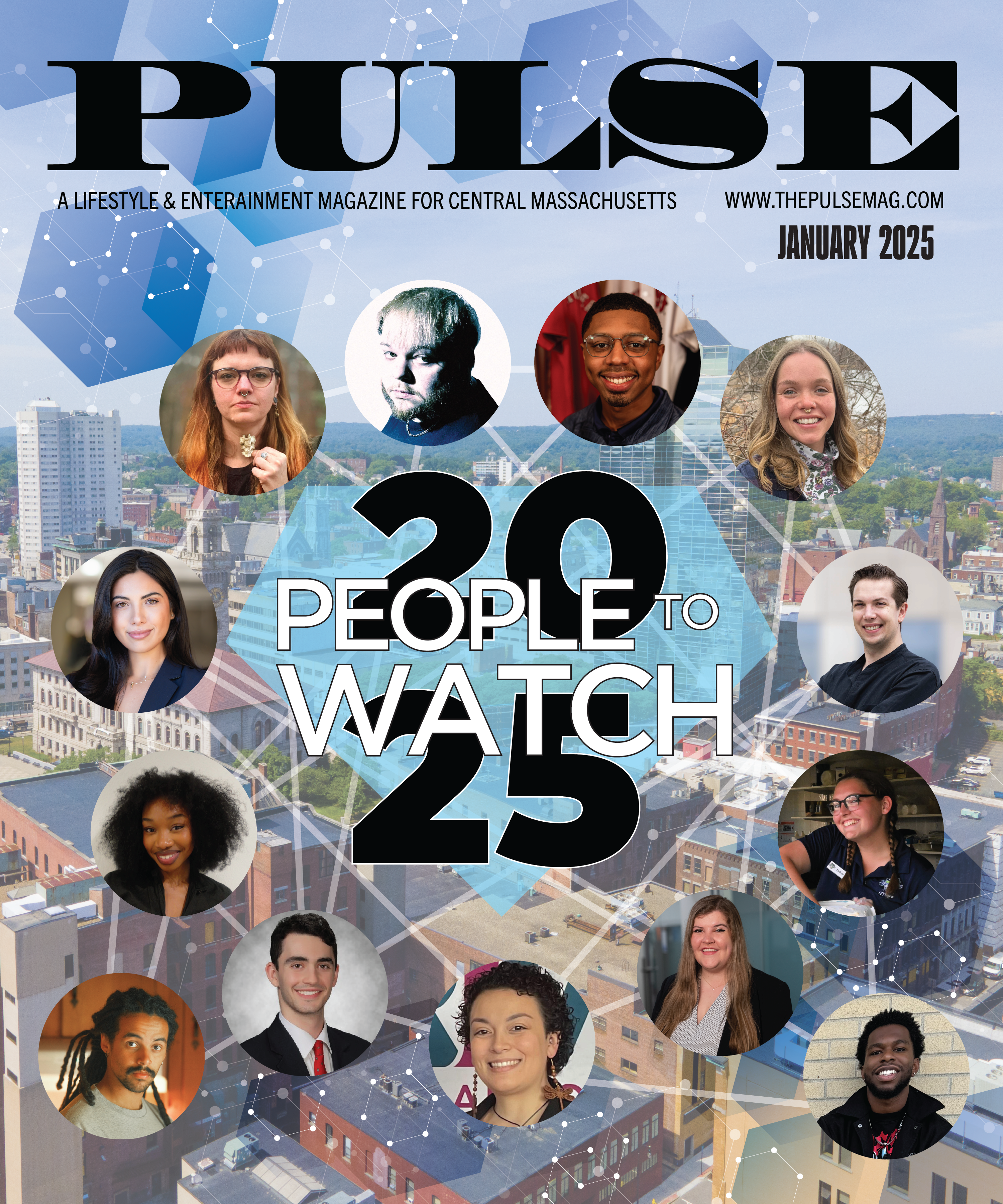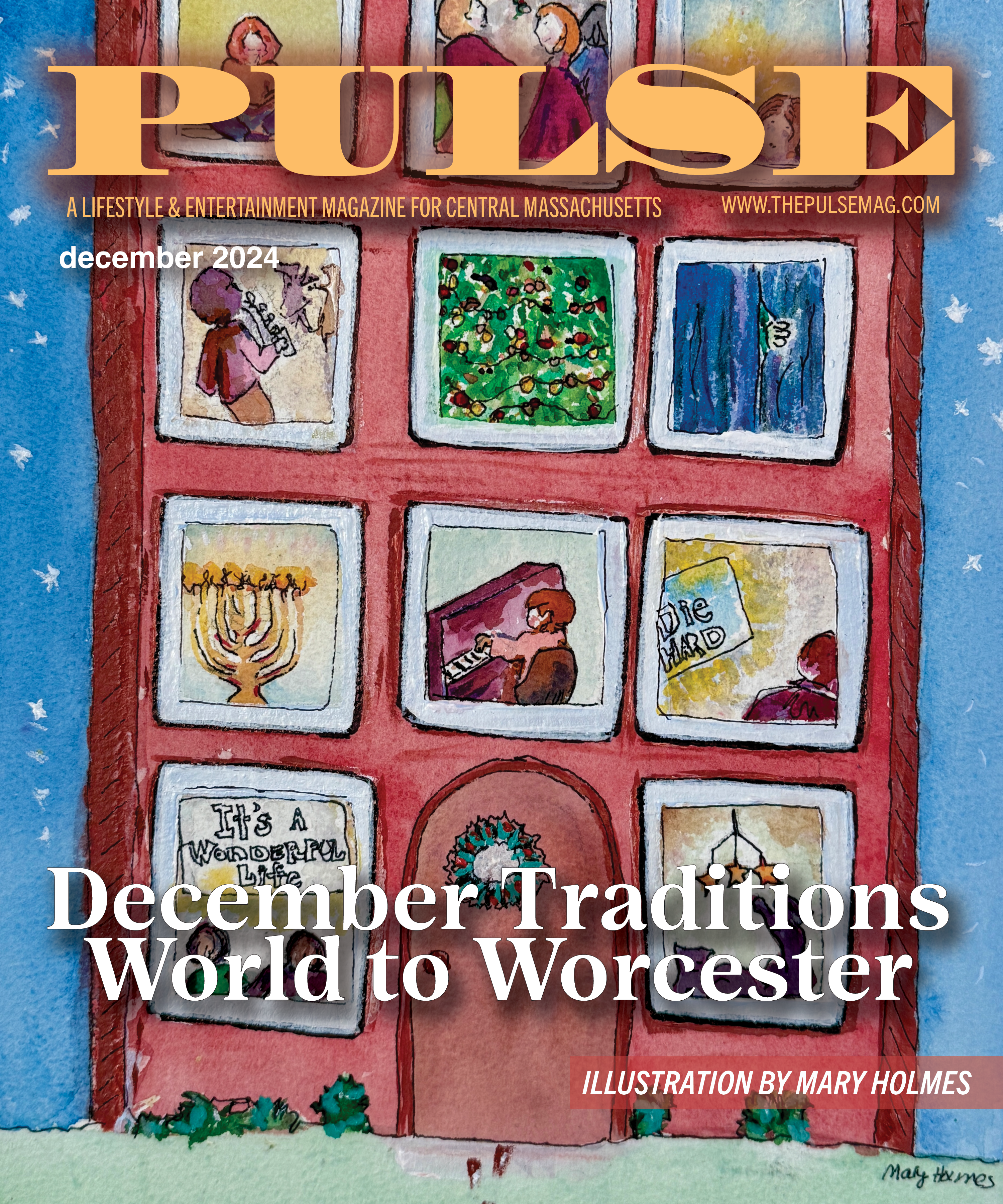By Bruce Elliot
It’s a cold, damp evening in October 2011, and a heavy drizzle has begun to fall on the final location of director Russell Rocheleau’s music video shoot for Otto Kinzel’s “I Want to Report a Murder.”
“Camera 1?”
“Rolling.”
“Action!”
A dark figure, in silhouette against a pair of headlights, gun drawn, stalks slowly towards two young lovers parked in a red Volkswagen Beetle. A flashlight flashes. Confusion is followed by terror. A shot rings out. Chaos! A young girl fumbles for a door handle and runs terror stricken into the dark rain. More shots, a couple lies dead, and Rockwater Pictures is born.
 Director Russell Rocheleau, a film freak from a young age, grew up in Lowell, and became drawn to Hammer horror and films by John Carpenter, Romero, and Cronenberg. After discovering Kubric, Scorcese, and Kirosawa, Rocheleau knew he wanted to pursue filmmaking. He enrolled in Fitchburg State’s small but acclaimed film program. “I shot, edited, mixed sound, all on 16mm film. I developed a discipline… a distinct vision and plan. I get my shots, and work very fast.”
Director Russell Rocheleau, a film freak from a young age, grew up in Lowell, and became drawn to Hammer horror and films by John Carpenter, Romero, and Cronenberg. After discovering Kubric, Scorcese, and Kirosawa, Rocheleau knew he wanted to pursue filmmaking. He enrolled in Fitchburg State’s small but acclaimed film program. “I shot, edited, mixed sound, all on 16mm film. I developed a discipline… a distinct vision and plan. I get my shots, and work very fast.”
Though Rocheleau worked “all kinds of jobs outside of film just to pay the rent,” he knew he would one day return to film. “I’ve walked away from it again and again, but it’s the only thing I really love, and am even remotely good at.” While directing a show for NEGB1, “I began meeting musicians… and one thing led to another.”
In the fall of 2011, Rocheleau met hardcore rocker Otto Kinzel, who had recently completed a concept album based on the Zodiac killer. Russell saw his chance. Shooting in digital video, he began creating the dark and menacing “I Want to Report a Murder.” It is a stylistic masterwork which delves into the mind of a serial killer, blending haunting images, frantic cuts, jarring titles, and an often moving camera to tell its horrific story.
Rocheleau had found his calling. While most simply hear a song, Russell sees it. “The brain just starts creating pictures, triggering sensations… I try to capture those pictures and let the images and music dance together.”
With the success of “Murder” came an opportunity to work with the Danish electronica group The Woodheads for their song “Monday Go Ahead.” Shooting in a cold New Hampshire warehouse, in an intentionally “rather low-rent style,” Rocheleau sought to craft a “twisted little creep-fest…like a snuff film you inadvertently purchased in a box of unmarked VHS.” Moving, slow-motion shots, hypnotic dance, cold industrial locations, and nightmarish imagery combine with a shocking ending. “America can crush your spirit. You want to be joyful, but sometimes you just want to end it all.”

A rap video for Oryn the Rebel’s “The Stick,” about an individual’s nocturnal quest for greater love, became the director’s third project. Set on the nighttime Boston cityscape, Rocheleau’s trademark moving camera, vibrant, powerful images, and shallow focus “…capture [the rapper’s] wandering spirit.”
His latest video project is for “Election,” by local hard-rockers Bullethead. The overtly political song presented a new challenge for Rocheleau. “Politicians don’t care about us, and can’t save us.” This was Rocheleau’s first production shot in a studio. “I wanted a hardcore performance piece… really let them rock out and show their stuff. Utilizing green screen effects, Rocheleau creates a stark white performance space juxtaposed against the harsh color of war and politics.
Rocheleau , in a short span of time, has established himself as a leading artist in the music video genre. His unique, often dark sensibility sets him apart. “The seventies are over; rock-n-roll all night ain’t gonna help us. There’s still a cold morning to face. There are musicians who feel this way too. I’d like to work with them.”
Learn more about Rockwater Pictures at www.rockwaterpictures.blogspot.com or email Russell at rockwaterpictures@gmail.com.
Photos:
Top: “Zodiac”
Right: Russell Rocheleau (L) directing “Granny Man”







